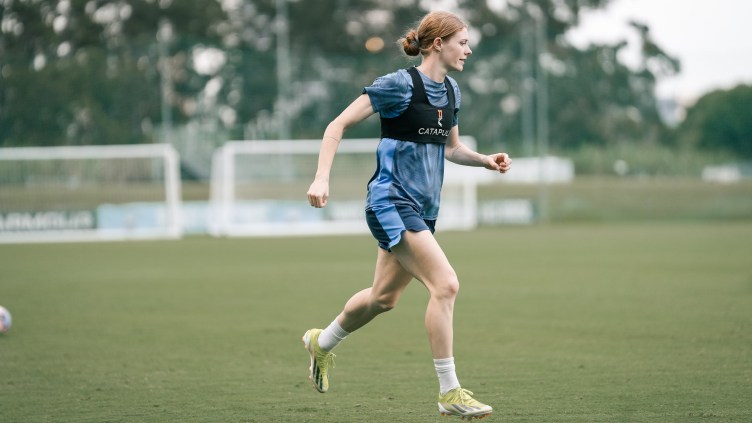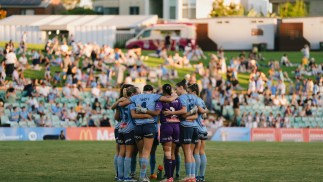The smallest team in the Hyundai A-League won the championship and that in itself is a reason to keep the salary cap in place.
There are many reasons to savour the championship success of Central Coast Mariners, but perhaps the most significant is one of the least recognised. It vindicates the salary cap.
Football, of course, is the global game. No sport has come to better symbolise globalisation. The movement of players, coaches, and owners across the world has never been more pronounced. Australia is no different. Three of the 10 Hyundai A-League clubs are owned by foreigners. We’ve had 51 nationalities represented as players since the competition began. We’ve had coaches from the Czech Republic, The Netherlands, England, Scotland, Germany and Northern Ireland. Like the rest of world football, our borders have become porous. There’s a lot to like about that.
But while the Hyundai A-League is becoming as cosmopolitan as the rest, the salary cap remains a major point of difference. We can get the benefits of globalisation – good quality foreign players with the right attitudes and the right price tag – without being held to ransom by it. In my view, that’s an increasingly important distinction.
Much as there are many players, coaches, and owners who would prefer to be rid of any restrictions, what does a free market really bring?
Take a look at the current league tables in Europe, and you get a good idea. It’s not just that the title chase is now, at best, a two or three-horse race in most countries. What’s especially concerning is just how big the gap between first and third has become.
In England, Manchester United are 21 points ahead of third-placed Arsenal. In Turkey, Galatasaray are 20 points in front of Besiktas. In Germany, Bayern Munich are a whopping 28 points better off than Bayer Leverkusen. In Spain, Barcelona are 17 points in front of Atletico Madrid. In Greece, OIympiakos are 21 points ahead of Asteras Tripolis. In Italy, Juventus are 18 points in front of AC Milan. In France, cashed-up Paris St Germain are 11 points ahead of Olympique Lyon. In Portugal, Benfica are 21 points ahead of Pacos de Ferreira.
There have always been dominant clubs in Europe, of course. But there has never been such a massive, across-the-board, disparity between the leaders and the chasing pack.
The UEFA Champions League, and the enormous wealth it brings, has created a ruling class than can only be reined in by legislation. It’s a large part of the reasoning behind the financial fair play regulations about to be implemented by UEFA.
Whether this ultimately leads to a salary cap in several countries will be especially interesting. I think it might. Anecdotally, there’s a groundswell of support across Europe for a process of equalisation. A way to re-open the title race, and give fans of some of the smaller clubs a reason to dream again.
Which is exactly what we already have here in Australia. The Mariners are, by virtually every measure, the smallest club in the Hyundai A-League. They are also, by virtually every measure, the most successful. The grand final victory caps off what has been a remarkable story of belief, professionalism, and perserverance. That Central Coast have become the fifth different champions in eight seasons tells us we have something to be proud of in the way we have structured our competition. Rather than following the rest of the world – which has been the raison d’etre of football in this country for generations – we are leading it in one significant area. Let’s not squander the advantage.
For that reason, it’s more important than ever that Football Federation Australia enforces the salary cap, not relaxes it. With the new television deal expected to virtually cover the base costs of every squad in the competition, there’s a serious temptation for some clubs to get ahead of themselves. We live in a capitalist society after all.
But football has to be different. It needs to be different. Release the shackles, and it’s easy to imagine clubs like Sydney FC, Melbourne Victory, Brisbane Roar and perhaps Western Sydney Wanderers quickly evolving into an elite.
That, in the long run, won’t serve the game’s best interests. What does serve our interests is the success of a club like the Mariners, who have won their maiden championship with the lowest budget in the league, with just two foreigners, without a marquee player, and without a guest player.
That’s not rewarding mediocrity. It’s rewarding excellence. The Mariners haven’t lowered the benchmark. They’ve raised it. Take away the salary cap and they’d be in danger of disappearing without a trace.



